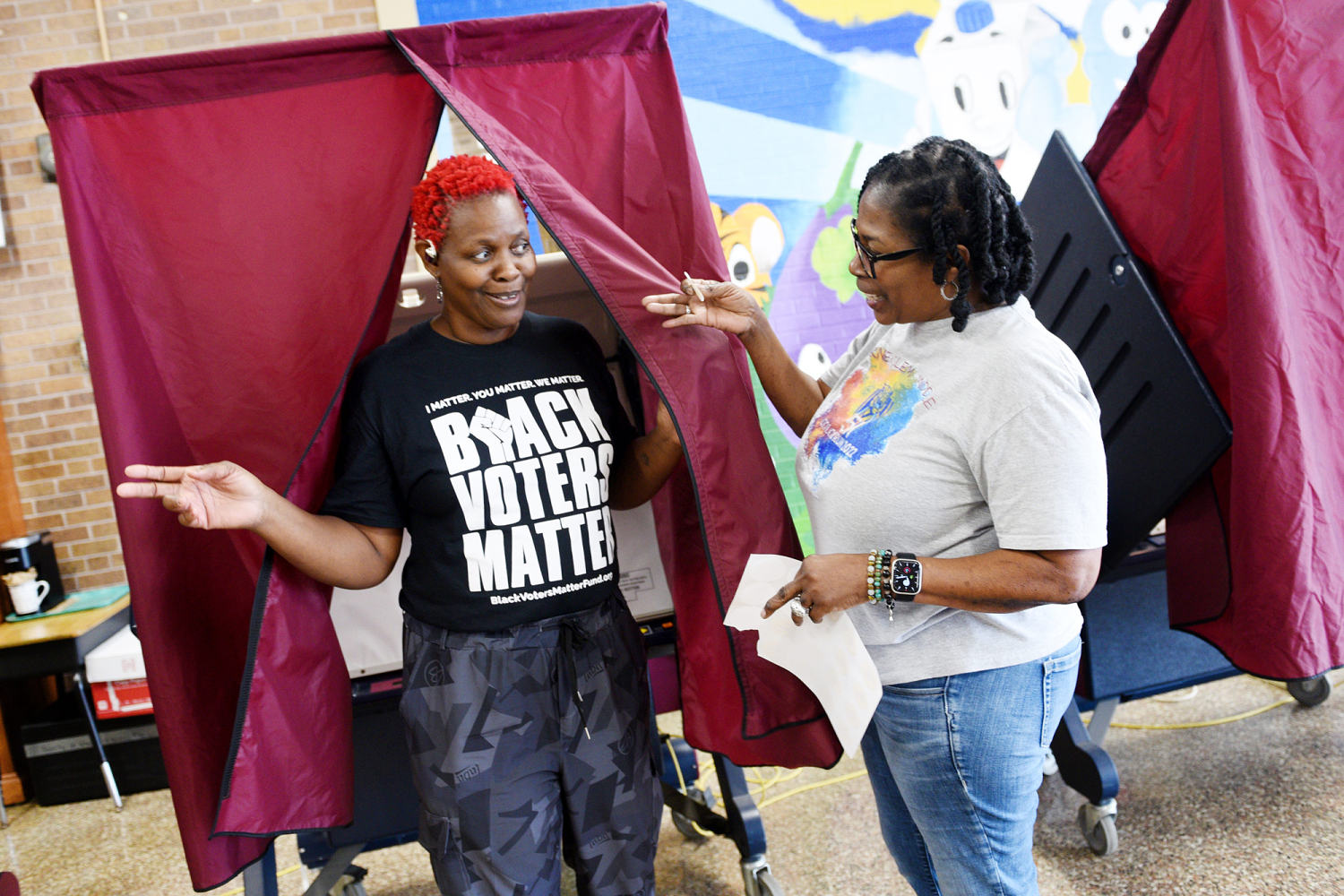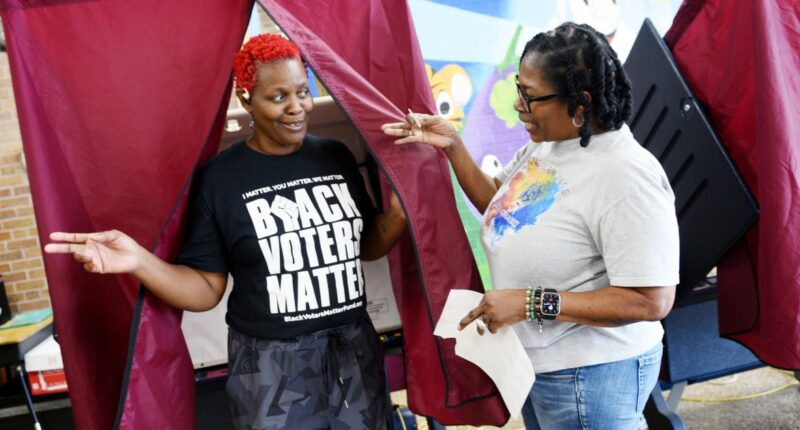Share this @internewscast.com

The Supreme Court, with its conservative majority, is set to examine a crucial element of the historic Voting Rights Act on Wednesday, focusing on a congressional redistricting case from Louisiana.
Over the summer, the scope of the case was broadened by the justices, who will now listen to arguments about whether race can be factored into the creation of new districts in compliance with Section 2 of the 1965 law. This Act was designed amidst widespread racial discrimination to safeguard the voting rights of minorities.
The ongoing issue arises from the congressional map Louisiana had to revise last year following a lawsuit under the Voting Rights Act. The map was challenged to include two majority-Black districts in a state where Black residents constitute one-third of the population, as the original plan contained only one such district.
Initially, the Supreme Court examined the case earlier this year with a focus on specific legal points. In a rare turn of events, it requested a reargument in June, expanding the case to address a significant constitutional question.
The court must now decide if creating a map to secure majority-Black districts contradicts the 14th and 15th amendments of the Constitution. These amendments, established post-Civil War, were meant to guarantee equal rights, including voting, for former slaves.
Conservative voices argue that the amendments forbid any racial considerations, a perspective endorsed by the Supreme Court in its 2023 decision that abolished race as a factor in college admissions.
Louisiana, which initially defended its new map, has switched sides and joined a group of self-identified “non-African-American” voters who sued to block it on constitutional grounds. The Trump administration also backs the state’s new position.
The map is being defended by civil rights groups that challenged the original map.
The Voting Rights Act has long been a target of conservative legal attacks, with the Supreme Court weakening it in two major rulings in 2013 and 2021.
But two years ago, the court surprisingly reaffirmed the requirement that race be used to redraw districts when necessary to comply with the law in a different congressional redistricting case from Alabama.
The ruling was 5-4, with two conservatives, Chief Justice John Roberts and Justice Brett Kavanaugh, joining the court’s three liberals in the majority. Kavanaugh, however, expressed reservations about the long-term future of Section 2.
A broad ruling in Louisiana’s favor would reduce the need for states to draw legislative districts composed largely of minority groups and would likely lead to a reduction in the number of minority lawmakers in Congress and state legislatures.
A quick ruling could give Louisiana and other states time to draw new districts ahead of the 2026 midterm elections. With Black voters often voting Democratic, such a move could benefit Republicans.









